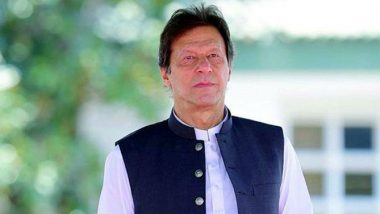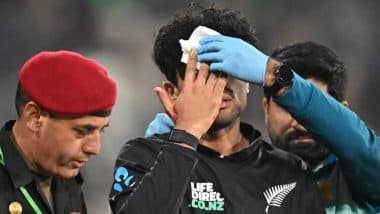Islamabad, September 15: Under pressure from the US and India to act against terror groups operating on its soil and to bring to justice the perpetrators of terror attacks, including the 26/11 Mumbai and Pathankot carnages, Pakistan on Tuesday urged partner countries to take an objective view to the issues of peace and security in South Asia.
The US and India last week denounced the use of terrorist proxies and strongly condemned cross-border terrorism in all its forms. They exchanged views on threats posed by UN-sanctioned terrorist entities and emphasised the need for concerted action against all terrorist networks, including al-Qaeda, ISIS/Daesh, Lashkar e-Tayyiba (LeT), Jaish-e-Mohammad (JeM) and Hizb-ul Mujahideen. Kulbhushan Jadhav Case: Pakistan Extends Ordinance, That Allows The Retired Indian Navy Officer to Appeal Against His Conviction, For 4 Months.
The two countries held the 17th meeting of the India-US Counter Terrorism Joint Working Group and the third session of the India-US Designations Dialogue virtually on September 9-10.
During the meeting, the two sides underlined the urgent need for Pakistan to take immediate, sustained, and irreversible action to ensure that no territory under its control is used for terrorist attacks, and to expeditiously bring to justice the perpetrators of such attacks, including 26/11 Mumbai and Pathankot.
The US also reiterated its support for the people and government of India in the fight against terrorism. In its reaction to the US-India joint statement of September 10, Pakistan's Foreign Ministry on Tuesday said it is important that partner countries take an objective view of the issues of peace and security in South Asia and refrain from endorsing positions that are divorced from ground realities.
"Our serious concerns and rejection of the unacceptable reference to Pakistan in the afore-mentioned Joint Statement have been conveyed to the US side," the foreign office said in a statement.
During the virtual meeting last week, India and the US also shared information about their priorities and procedures for pursuing sanctions and designations against terrorist groups and individuals, particularly in light of recent legislative changes in India.
The Paris-based global anti-money-laundering watchdog Financial Action Task Force (FATF) put Pakistan on the grey list in June 2018 and asked Islamabad to implement a plan of action to curb money laundering and terror financing by the end of 2019, but the deadline was extended later due to COVID-19 pandemic. Plane Crash in Pakistan: PAF Aircraft Crashes Near Pindigheb in Attock During Routine Training Mission, Pilot Ejected Safely.
Seeking to wriggle out of the FATF's grey list, Pakistan last month imposed financial sanctions on 88 banned terror groups and their leaders, including 26/11 Mumbai attack mastermind and Jamaat-ud-Dawa (JuD) chief Hafiz Saeed, Jaish-e-Mohammed (JeM) chief Masood Azhar, and underworld don Dawood Ibrahim.
With Pakistan''s continuation in the ''grey list'', it will be difficult for the country to get financial aid from the IMF, World Bank, ADB, and the European Union, thus further enhancing problems for the nation which is in a precarious financial situation.













 Quickly
Quickly




















